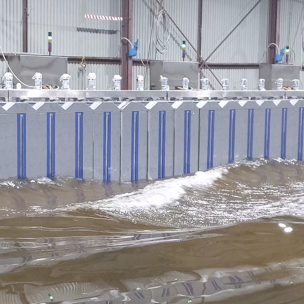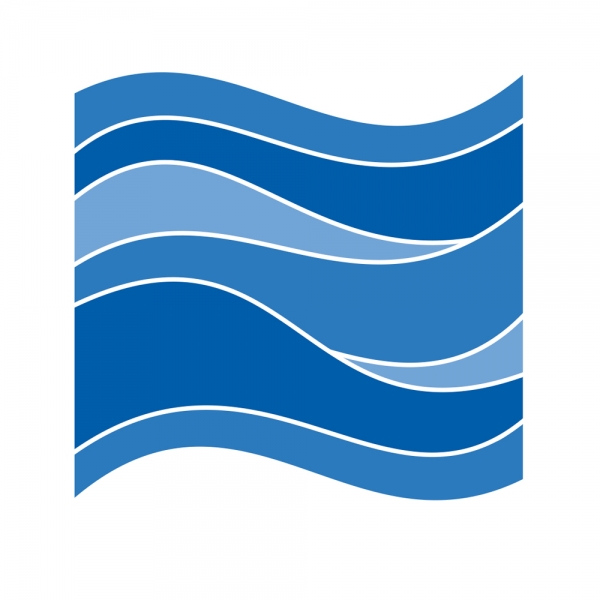Wave basin

WRL's wave basin is used for wide range of coastal studies including coastal structures, breakwater and harbour models and beach morphology investigations. Our basin underwent a complete rebuild in 2022 increasing in size, depth and capability, creating a coastal investigation facility unique to Australia. Our basin is capable of testing long-crested or short-crested waves, sensitivity testing to a range of wave directions, for both operational or extreme wave conditions; using our segmented wave maker.
-
- 16 m wide x 28 m long x 1.4 m deep
- Site specific bathymetry is reproduced using recycled road base capped with concrete
- 16 m wide, 24 element, segment wave maker
- Monochromatic and irregular wave spectrums, as well as producing user defined pre-recorded wave sequences
- Long-crested directional waves 16 m length, 24 element, electric drive generator
- Short-crested waves with adjustable spread function
- 0.3 m to 1.0 m operational water depth
-
- Analysis of breakwater/revetment armour stability.
- Harbour design optimisation and wave penetration.
- Nearshore wave processes around coastal structures (breakwater, dredged channels, training walls)
- Detached breakwater and groyne impact on beach morphology
- Wave run-up and overtopping; including overtopping safety assessments.
- Wave loading and wave/structure interactions
WRL’s wave basin is equipped with state-of-the-art instrumentation including multi-element random wavemakers with active wave absorption, resistive or capacitance wave probes, 3D laser scanners. The permanent floor of the wave basin is constructed of concrete, although a site-specific 3D bathymetry is typically constructed on top for each project using a combination of laser cut 2D transects bathymetric profiles and gravel fill with a fibre reinforced concrete capping to allow proper representation of natural wave propagation processes.
Additional passive wave absorbers are installed around the perimeter of the basin to remove unwanted wave reflections, enhancing the overall quality of the generated wave conditions. Optional solid walls can be installed along the east and west sides of the basin to improve the quality of the long-crested wave fields.

